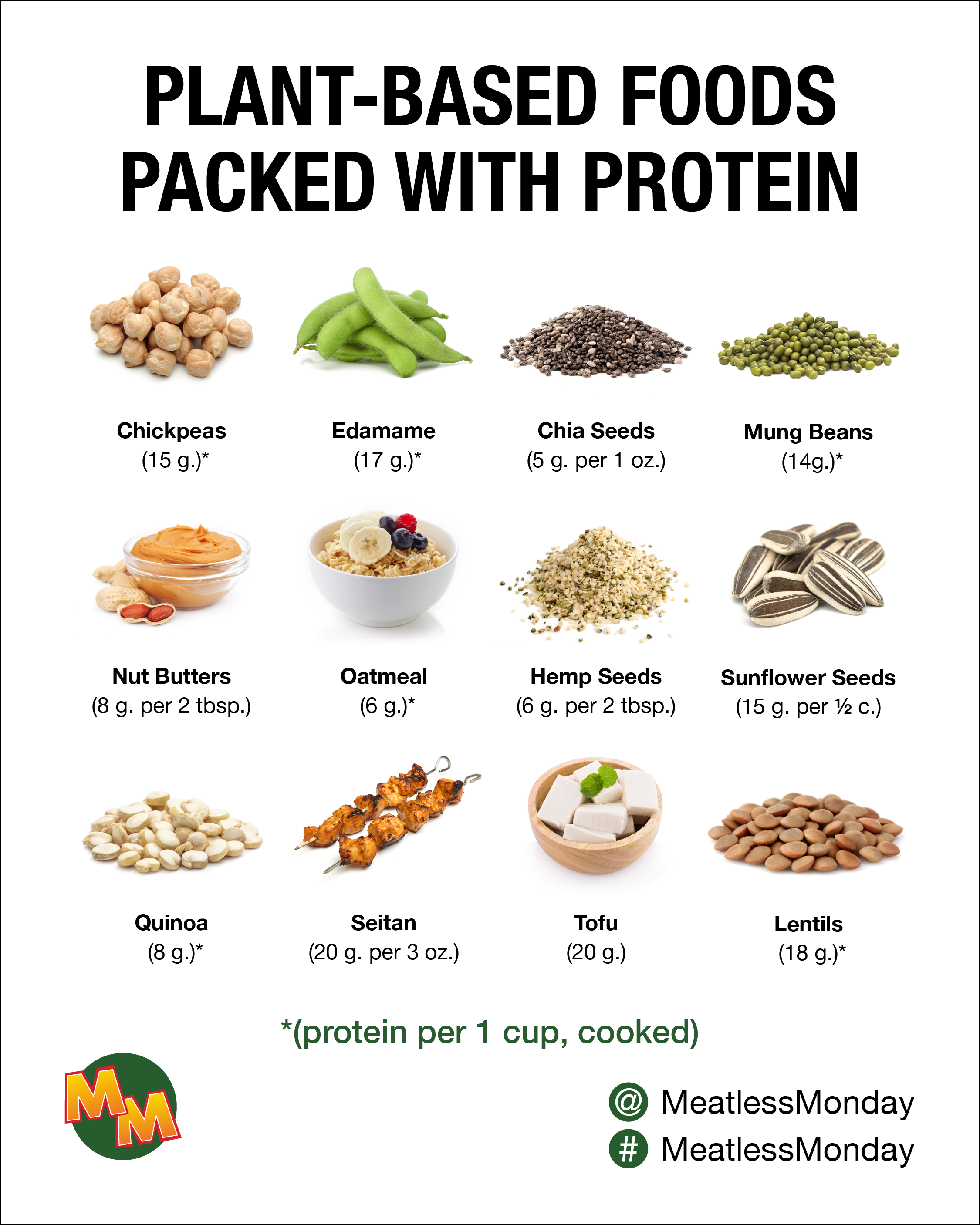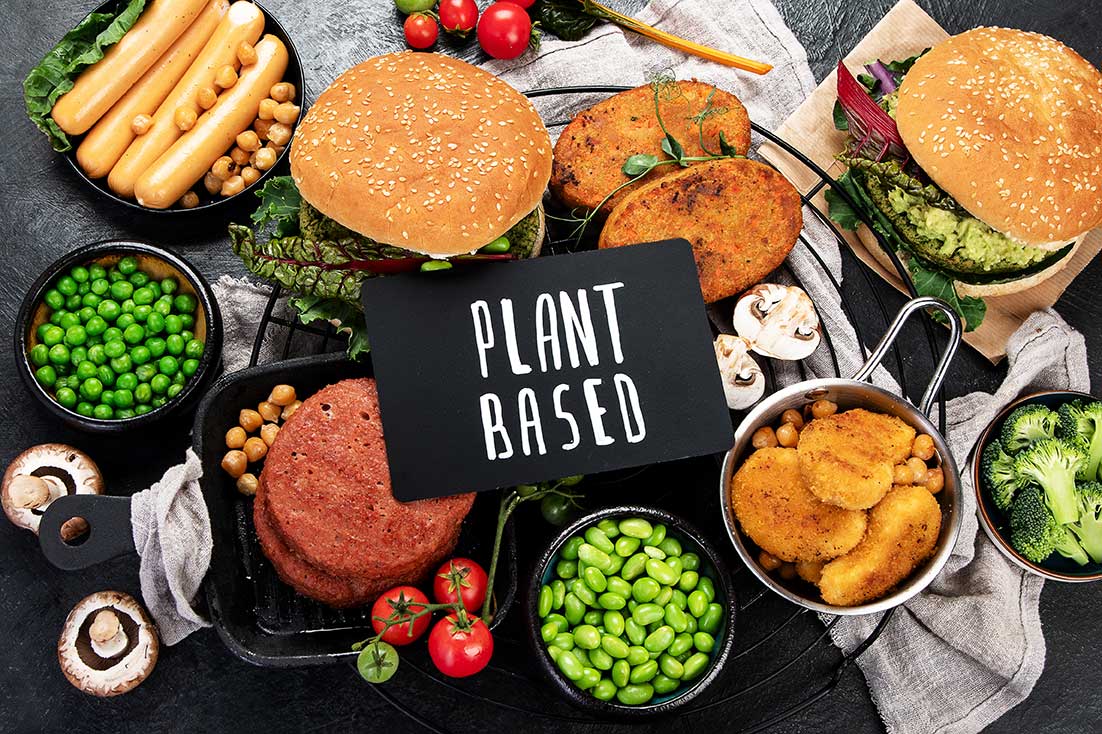The Truth About Plant Based Beef: Taste Test Results & Nutritional Facts
The Truth About Plant Based Beef: Taste Test Results & Nutritional Facts
Blog Article
All About Healthy Food: Advantages of Checking Out Plant Based Alternatives
The conversation surrounding plant-based diet plans has acquired considerable attention recently. Numerous people are discovering the possible health and wellness advantages, nutritional advantages, and ecological effects connected with these dietary selections. As individuals end up being more aware of their food's impact on wellness and sustainability, questions arise concerning the functionalities of adopting such a way of living. What details modifications can one expect, and just how might these options reshape not just personal wellness however also the earth's future?
Recognizing Plant-Based Diet Plans
Although lots of people link plant-based diet plans mainly with vegetarianism or veganism, these diet regimens can include a large range of eating patterns that focus on whole, minimally refined plant foods. Such diets usually include fruits, veggies, whole grains, seeds, nuts, and vegetables, while removing or restricting animal items. This flexibility enables people to customize their dietary options according to nutritional demands and individual preferences. Some might take on a mainly plant-based diet regimen while still occasionally consuming meat or dairy products, usually referred to as a flexitarian technique. The emphasis continues to be on incorporating even more plant foods, which can bring about a diverse range of dishes and tastes. Comprehending these numerous analyses of plant-based eating is vital for valuing its ease of access and charm in modern food society.
Health Advantages of Plant-Based Foods
The health and wellness advantages of plant-based foods are substantial, offering a nutrient density advantage that supports overall well-being. Research study suggests that these foods can enhance heart health and wellness and play an essential role in efficient weight administration. By integrating a lot more plant-based choices, individuals may improve their dietary choices and promote long-term wellness.
Nutrient Thickness Benefit
Nutrient thickness plays a crucial duty in the wellness advantages of plant-based foods, making them a compelling option for those seeking a balanced diet regimen. Plant-based foods, such as fruits, veggies, vegetables, nuts, and whole grains, are typically rich in important vitamins, minerals, and antioxidants while being reduced in calories. This high nutrient thickness enables individuals to consume less calories while still satisfying their nutritional needs. In addition, these foods are loaded with dietary fiber, promoting digestive system wellness and assisting in weight administration. By integrating nutrient-dense plant-based options, customers can improve their overall health, sustain their body immune systems, and reduce the threat of persistent diseases. Inevitably, the nutrient thickness of plant-based foods underscores their relevance in a health-conscious way of life.
Heart Health Renovation

Weight Administration Support
Along with advertising heart health and wellness, a plant-based diet can significantly aid in weight monitoring. This dietary approach highlights entire foods such as fruits, vegetables, beans, nuts, and whole grains, which are normally lower in calories and higher in fiber contrasted to animal-based products. The high fiber material helps boost satiation, decreasing general calorie consumption. Plant-based diets are typically abundant in important nutrients while reduced in harmful fats, making it simpler to keep a healthy and balanced weight. Research suggests that people who adopt a plant-based way of life often tend to have lower body mass indexes (BMIs) and experience more successful weight loss compared to those who take in meat-heavy diet regimens. Consequently, embracing plant-based choices is a calculated selection for effective weight management
Nutritional Value of Plant-Based Ingredients
Plant-based components are rich in necessary nutrients, supplying a varied selection of vitamins, minerals, and anti-oxidants that add to overall health. A comparison of protein sources reveals that while animal products are frequently deemed exceptional, numerous plant-based choices offer appropriate protein and other advantageous compounds. Understanding the nutritional worth of these active ingredients can aid people make notified dietary choices.
Important Nutrients in Plants
Nutrient-rich ingredients found in plants supply a varied variety of necessary nutrients that contribute significantly to general health. These active ingredients are abundant in vitamins A, C, and K, which support immune feature, vision, and blood clot, specifically. On top of that, plants supply vital minerals such as calcium, potassium, and magnesium, important for heart health, muscular tissue feature, and bone toughness. The presence of fiber in plant-based foods aids food digestion and advertises a healthy intestine microbiome. Antioxidants, located generously in veggies and fruits, assistance combat oxidative anxiety and decrease swelling. Lots of plant foods are reduced in calories yet high in nutrients, making them an exceptional selection for those seeking to keep a healthy weight while making sure ideal nutrient consumption.

Contrasting Healthy Protein Resources
Protein resources differ substantially in their dietary profiles, with plant-based ingredients offering unique benefits. Unlike pet proteins, which typically include saturated fats and cholesterol, plant healthy proteins often tend to be lower in these unhealthy parts. Legumes, nuts, seeds, and entire grains are abundant in necessary amino acids, fiber, vitamins, and minerals. For example, lentils provide high protein material see it here together with significant iron and folate, while quinoa is a full healthy protein, providing all nine crucial amino acids. Additionally, plant-based healthy proteins are typically gone along with by antioxidants and phytochemicals that sustain general health. The change to plant-based protein resources not only boosts nutritional consumption but additionally aligns with lasting dietary methods, decreasing ecological impact and advertising long-term health and wellness benefits.
Environmental Effect of Plant-Based Consuming
As awareness of environment change grows, several individuals are discovering sustainable dietary selections that can significantly minimize their ecological footprint. Plant-based consuming has actually become a significant contributor to lowering greenhouse gas exhausts, which are primarily related to animals manufacturing. The farming of fruits, vegetables, grains, and legumes typically requires less sources, such as water and land, contrasted to pet farming. Additionally, plant-based diets can lead to decreased deforestation, as much less land is needed for grazing animals or expanding pet feed. By shifting in the direction of plant-based alternatives, customers can support biodiversity and promote healthier communities. In general, embracing plant-based consuming not just benefits personal health yet likewise represents an essential action towards environmental sustainability and preservation initiatives.
Overcoming Common Misconceptions
While many individuals recognize the advantages of a plant-based diet regimen, numerous mistaken beliefs usually hinder them from fully welcoming this lifestyle. An usual belief is that plant-based diet plans lack sufficient protein; however, various plant resources, such as legumes, nuts, and tofu, give adequate healthy protein. Additionally, some presume that this diet plan is pricey, when as a matter of fact, staples like beans, rice, and seasonal veggies can be quite budget friendly. An additional mistaken belief is that plant-based eating is extremely limiting, whereas it actually uses a varied range of foods and flavors. Lots of stress that a plant-based diet might lead to shortages, yet with correct planning, individuals can get all required nutrients, including vitamins and minerals, while delighting in a broad variety of scrumptious meals. Large Tips for Transitioning to a Plant-Based Way of life
Making the change to a plant-based way of life can be an enriching experience, though it frequently needs some advice to browse the first changes. Individuals are motivated to start slowly, incorporating more fruits, veggies, beans, and entire grains into their meals while decreasing meat and dairy consumption. Dish preparation is essential; preparing a weekly menu can aid ease the adjustment and protect against last-minute unhealthy choices. Checking out cooking approaches and new recipes can additionally maintain and improve the experience excitement about plant-based eating. In addition, joining support system or communities can supply inspiration and share valuable ideas. Remaining notified about nourishment guarantees balanced dishes, protecting against shortages while promoting a healthy and balanced, satisfying plant-based way of life.

Delicious Plant-Based Dish Concepts
Discovering tasty plant-based dish ideas can influence individuals to accept a more nutritious diet plan. One popular option is a passionate quinoa salad, including cherry tomatoes, cucumber, and a vibrant lemon-tahini dressing. One more favorite is a savory lentil stew, packed with carrots, celery, and fragrant natural herbs, perfect for a reassuring dinner. For breakfast, overnight oats made with almond milk, chia seeds, and topped with fresh berries supply a healthy start to the day. Furthermore, a vibrant vegetable stir-fry with tofu and a range of colorful veggies can be a quick yet pleasing dish. Velvety avocado toast on whole-grain bread, sprinkled with seeds and spices, offers an easy yet flavorful snack. These dishes display the selection and richness of plant-based eating.

Often Asked Concerns
Can a Plant-Based Diet Regimen Offer Enough Healthy Protein?
The browse around this web-site question of whether a plant-based diet plan can provide enough healthy protein prevails. Many sources, consisting of beans, nuts, seeds, and whole grains, can satisfy protein requires properly, sustaining a nutritious and balanced diet regimen for people.
Are Plant-Based Diet Plans Suitable for Children?
The viability of plant-based diet plans for youngsters depends upon mindful planning. Ample nutrients should be ensured, including healthy proteins, vitamins, and minerals. With appropriate assistance, such diet regimens can support healthy and balanced development and development in youngsters.
How Do I Eat in restaurants on a Plant-Based Diet regimen?
Dining out on a plant-based diet plan entails seeking restaurants with varied menus, requesting alterations, and exploring vegan-friendly choices. Preparation in advance and communicating dietary Sugar Free Sauces choices can improve the eating experience while maintaining nutritional selections.
What Prevail Allergens in Plant-Based Foods?
Usual allergens in plant-based foods consist of soy, gluten, nuts, and seeds - Plant Based Chicken. People adhering to a plant-based diet plan needs to understand these irritants and review tags thoroughly to prevent negative reactions and guarantee secure consumption
Can Plant-Based Diets Aid With Weight Reduction?
Research study suggests that adopting a plant-based diet might help with weight-loss because of its generally reduced calorie thickness and greater fiber material. This combination can enhance satiation, assisting people handle their caloric consumption efficiently. Numerous individuals link plant-based diet plans primarily with vegetarianism or veganism, these diet regimens can encompass a large range of eating patterns that focus on whole, minimally processed plant foods. Nutrient thickness plays an important role in the wellness advantages of plant-based foods, making them an engaging choice for those looking for a balanced diet. Plant-based diets have been shown to markedly boost heart health, as they frequently consist of aspects that support cardio function. In addition to advertising heart wellness, a plant-based diet can significantly aid in weight monitoring. A common belief is that plant-based diet regimens do not have enough healthy protein; nevertheless, various plant sources, such as legumes, nuts, and tofu, supply ample healthy protein.
Report this page